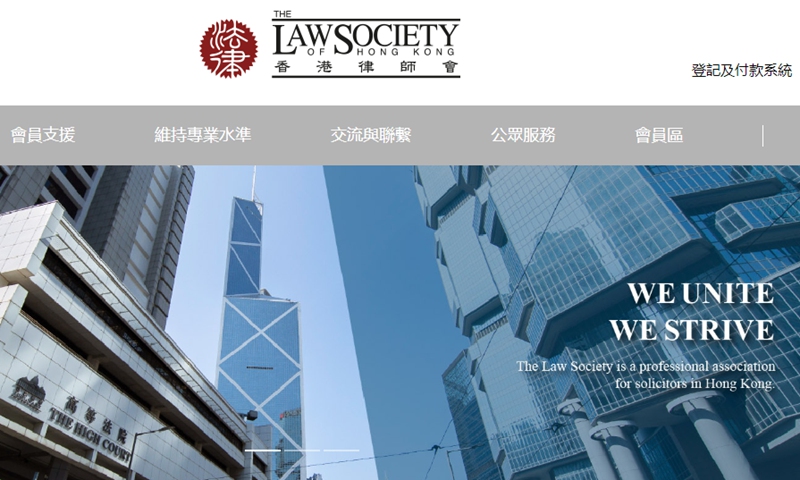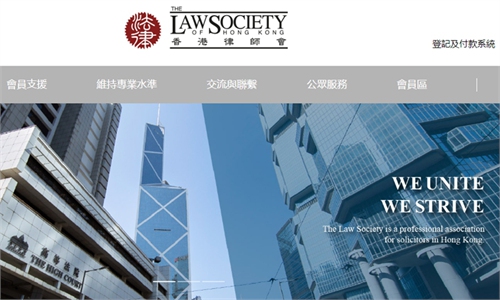HK legal sector returns to rationality with election of pro-establishment Law Society president

Photo: A screenshot of the Hong Kong Law Society website
The election of the new pro-establishment president of the Law Society of Hong Kong has once again shown the pillar role of the national security law for Hong Kong in maintaining the region's order and stability, legal experts said Tuesday, suggesting a return to rationality in the region's legal community.
Chan Chak-ming, former vice president of the organization, has been elected the new president, according to the official website of the Hong Kong Law Society on Tuesday, while another three will serve as vice presidents at the organization's council. Legal experts said all members at the governing body of the largest legal organization in Hong Kong are from the pro-establishment camp.
Chan has served as a lawyer for 24 years. Since 2018, he has served as vice president of the Law Society. He is a member of the Ji'nan People's Political Consultative Conference in East China's Shandong Province, and a member of the Law Reform Commission of Hong Kong.
The race for Law Society president came a week after the Law Society's council election, which secured the pro-establishment camp's dominance as the five winners, including Careen Wong and Jimmy Chan, are all deemed as pro-establishment.
Days ahead of the council election, Carrie Lam, chief executive of the Hong Kong Special Administrative Region government, warned that the Law Society should not let politics override professionalism, otherwise the government would consider ending cooperation with it.
The results have suggested an all-round victory of the pro-establishment camp and the fall of the opposition camp, as 14 council members are from the pro-establishment camp while only five, taking into account the sudden resignation of Cheung Tat-ming the night before the presidential election, come from the opposition camp, Kennedy Wong Ying-ho, a member of the Law Society, told the Global Times on Tuesday.
Cheung has similar stances with the opposition group Hong Kong Civic Party, and has a close relationship with Benny Tai Yiu-ting, a secessionist leader who initiated the "Occupy Central movements," local legal experts said.
"The fall of the opposition camp in the Law Society has once again spoken to the role of the national security law as the pillar for maintaining order and stability in the region," Wong, who is also solicitor of the Supreme Court of Hong Kong, told the Global Times.
"Under the national security law, the opposition forces will no longer be able to gain votes with its usual tricks of inciting anti-government sentiment among solicitors, and as a result Hong Kong's legal community is now returning to rationality and pragmatism," he noted.
Wong said he expects more exchanges with mainland legal communities in the future, particularly in the Guangdong-Hong Kong-Macao Greater Bay Area.

